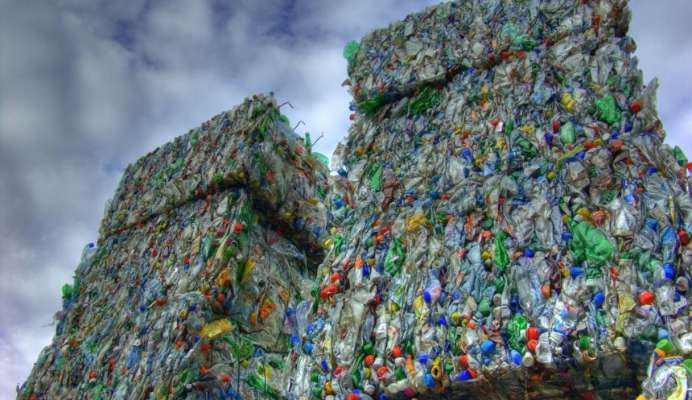Plastic waste: EU declares war without imposing tax

In just over a decade, every single piece of packaging used across Europe could be reusable or recyclable. That’s the new plan set out by the European Union, to cleanse the environment of plastic waste while also driving growth and innovation.
Jyrki Katainen, the European Commission’s vice-president for jobs and growth, said only 6 per cent of plastics in the bloc were recycled and that common quality standards would increase the amount of material that industry could reuse. “We don’t have well-functioning plastic waste markets, [because] the quality standards are different and the supply of recycled plastic is smaller than it could be,” he said.
Following China’s decision to ban imports of foreign recyclable material, Brussels on Tuesday launched a plastics strategy designed to change minds in Europe, potentially tax damaging behaviour, and modernise plastics production and collection by investing €350m (£310m) in research.
Mr Katainen said a plastics tax, raised last week by Günther Oettinger, the budget commissioner, was a “fascinating idea” and was being considered but would be “quite complicated” to implement.
The strategy could see far fewer everyday items such as plastic bags and bottles on our streets, a modernised approach to plastics production and heavier taxes imposed.
Frans Timmermans, first Vice-President of the European Commission said; “By 2030 which is only 12 years away, all plastic packages in the EU market must be reusable or recyclable in a profitable manner. We are going to turn out packaging legislation inside out and review what kind of plastic packaging can be put on the market to enable easy and cost-effective recycling”.
Timmermans referred to dangerous single-use plastics, such as drinking straws, “lively coloured” bottles that do not degrade, coffee cups, lids and stirrers, cutlery and takeaway packaging.
The EU wants 55% of all plastic to be recycled by 2030 and for member states to reduce the use of bags per person from 90 a year to 40 by 2026.
An additional €100m is being made available on top of current spending to research better designs, durability and recyclability and EU member states will be put under an obligation to “monitor and reduce their marine litter”. The proposals will be reviewed over the coming months before heading to the European Parliament.
Environmental organisations welcomed the EU strategy as a good first step but highlighted the need for the bloc to binding targets. Delphine Lévi Alvarès, of the Rethink Plastic Alliance, said laws were needed “to drastically reduce the consumption of both single-use plastic items and packaging within this commission’s term”.
The EU plastics sector generated €350bn of sales in 2015 and employed 1.5m people.

